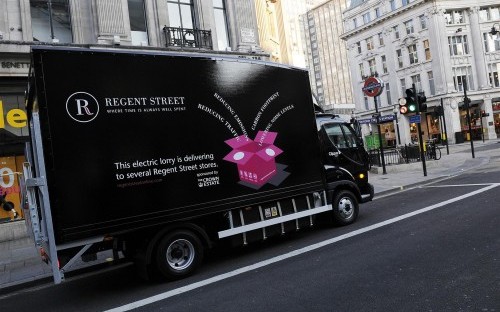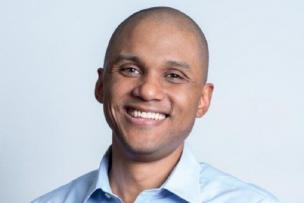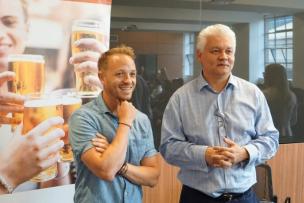After the success of the Birds Nest stadium for the 2008 Beijing Olympics, Arup has also been heavily involved in keeping London running during the 2012 Olympics. Talented business people, as well as engineers, are required to keep this global company – with offices in 42 countries – moving forward.
Darren Briggs discusses making life easier for London residents, delivering best global practice, and the freedom to develop new opportunities.
What's your role at Arup and how long have you been there?
I am an Associate Director in Arup’s Operations team, and have been for seven years.
What is your favourite Arup project, and why?
Currently, my favourite project is a scheme we are doing with The Crown Estate, which aims to reduce traffic associated with deliveries in Regent Street.
So far we have launched three initiatives which are making a significant difference to businesses in the area: a logistics facility that consolidates deliveries to retailers which has reduced traffic from participating companies by 80%; a preferred supplier scheme which provides preferential rates to offices; and a final mile electric bike facility which allows suppliers to deliver in bulk out of hours and have their deliveries made during the day on electric bikes.
We should also have a “hands free shopping scheme” launched by the end of this year which will allow customers to drop off their bags in any participating shop.
Do you hire people from business schools? Any MBAs?
In my team, we tend to employ people before they do an MBA but we have a few people who have gone through MBA courses and Arup is very supportive of staff furthering their qualifications after they join the firm.
What advice do you have for MBAs hoping to get a job at your company?
Arup has a large consultancy group which is sub-divided into specialist areas and applying to the correct specialist area is key. I would suggest checking our website to look at the various areas we work in and trying to meet someone from Arup to discuss which is the most suitable one to target.
What are the most exciting things about a career with Arup?
Perhaps because of the way Arup is owned and run (we have an ownership structure akin to John Lewis), staff are surprisingly free to develop new ideas, new opportunities or new skills. I started as an engineer, became a project manager, then moved into logistics and am now managing part of the Operations team. There is a level of control, but an enthusiastic person who wants to develop something will usually be allowed to give it a try.
My main interest is around how cities operate. We have been helping to advise Transport for London on how to keep London running during the Olympics, and are looking to set up a number of companies to launch innovative services around sustainable logistics.
What are the benefits of working with such a global company?
It’s a great opportunity to see the world and be paid at the same time! People in my team have worked in Australia, Hong Kong, India and the USA for six to 24 months and there are numerous opportunities to work on shorter projects around the world.
On a more serious note, our global customers also expect us to deliver global best practice. I believe that is only possible if we are located globally and communicate the work that we do on a global basis, which is something Arup is very good at.
Do you think engineers make good business people?
Being technically competent and understanding the legal and financial aspects of a business are areas that engineers grasp very quickly. However, good business is also about relationships, understanding clients' businesses and being pro-active, and this is not always taught to engineers.
Read more about MBA jobs and recruiters here
RECAPTHA :
40
84
34
46







